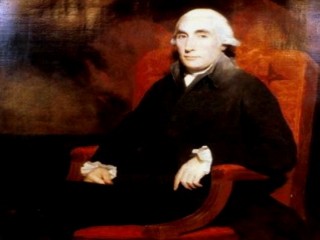
Joseph Black biography
Date of birth : 1728-04-16
Date of death : 1799-12-06
Birthplace : Bordeaux, France
Nationality : British
Category : Science and Technology
Last modified : 2011-08-11
Credited as : Chemist, discovery of carbon dioxide fixed air, intensity and quantity of heat
The British chemist Joseph Black is famous for his discovery of "fixed air" (carbon dioxide). He also discovered latent heat and was the first to recognize clearly the difference between intensity and quantity of heat.
Joseph Black was born on April 16, 1728, in Bordeaux, France, the son of a Scottish merchant settled in that city. Educated first at the University of Glasgow, he proceeded to the University of Edinburgh to complete his medical studies and presented his thesis there in 1754. This thesis, submitted, as was then customary, in Latin, was published in English in an expanded form in 1756 under the title Experiments upon Magnesia Alba, Quicklime, and Some Other Alcaline Substances.
The work described in this thesis sounded the death knell of the phlogiston theory and led in due course to the development of the modern system of chemistry through the work of Lavoisier and others. In his thesis Black showed by careful quantitative experiments that magnesia alba, a mild alkali, lost weight on heating; that this loss in weight was due to the release of an air, different from ordinary atmospheric air, which he named "fixed air" (now known as carbon dioxide); and that the ignited magnesia no longer effervesced with acids. Mild alkalies were thus shown to differ from caustic alkalies by containing "fixed air" in combination, and the same "fixed air" was later found by him to be produced in respiration, in fermentation, and in the combustion of charcoal. To appreciate the full significance of these results, it should be remembered that prior to Black's work it was believed that limestone (a mild alkali) on heating absorbed fiery particles (phlogiston) and was thereby converted to quicklime (a caustic alkali). Black's application of the chemical balance to the study of such chemical reactions demonstrated the falsity of this view and in the broader sense was perhaps his greatest contribution to science.
When Black moved to Glasgow in 1756 as professor of anatomy and chemistry, he turned his attention to the study of heat, applying to it the same quantitative approach he had used in his chemical work. He showed that different substances have different capacities for heat. Further studies led him to the discovery of latent heat and to the first reasonably accurate measurements of the latent heat of vaporization and freezing of water. James Watt later applied these discoveries in his development of the steam engine. Black returned to the University of Edinburgh in 1766 as professor of chemistry and medicine, a position which he occupied until his death on Dec. 6, 1799.
















